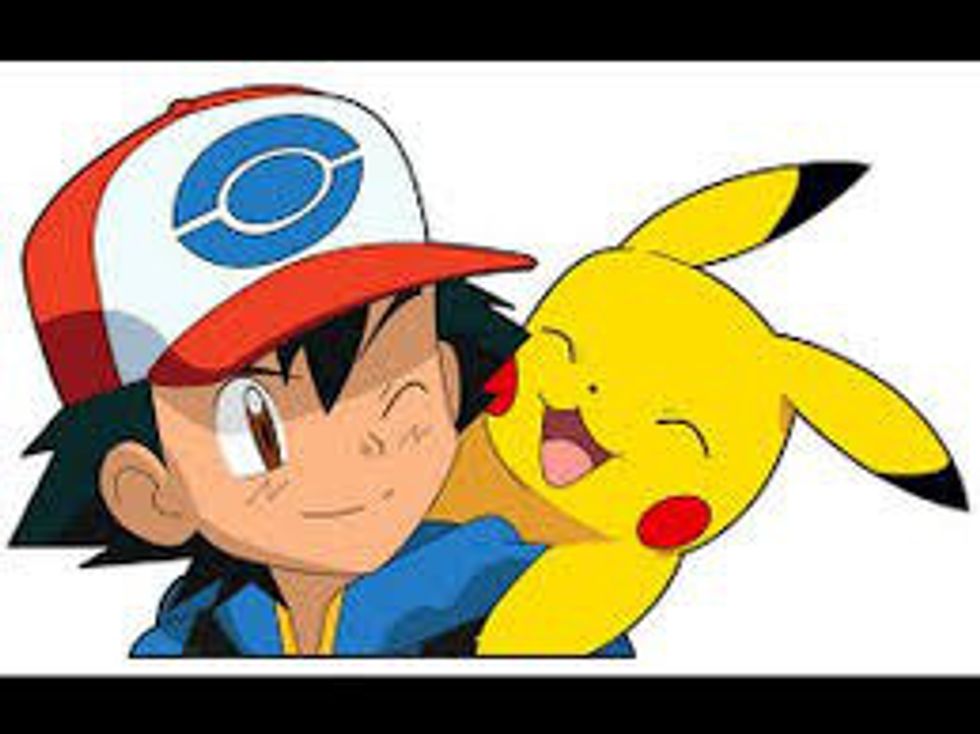I don't know about you, but I was born in the year 1998--right into the explosion of Pokemon's popularity in the '90s. Needless to say, I grew up playing, watching, and talking about Pokemon pretty frequently. Recently, I saw online that the Pokemon TV series (which is still miraculously running after 18 years) currently had the main protagonist, Ash Ketchum, competing in the newest installment of the "Pokemon League." Driven by nostalgia, I decided to tune in a watch a few episodes for old times' sake. And who knows, maybe Ash would actually win it all.
After watching a few episodes, a thought came to me that I didn't really expect. It was in regards to the characters in the show, their genders, and what roles they fill within the show. I first started thinking about it when I realized that the four contestants in the semifinals of the "Pokemon League" were all boys or men, no females. I then realized that out of the show's main cast of characters, several of the male characters competed in the league, but none of the female characters followed suit--they simply sat on the sidelines, watched, and cheered.
I'm not accusing anyone involved with the creation of Pokemon of anything (especially since the cartoon is made in Japan where cultural differences are significant), but watching the show got me thinking about other cartoons and what kind of gender roles kids have been seeing over time.
And the result is very similar to the "Pokemon League."
Think about almost any cartoon you've ever heard of, going back to the beginning of mainstream animation all the way to today: Looney Tunes, Tom & Jerry, Teenage Mutant Ninja Turtles, Johnny Bravo, Spongebob Squarepants, Phineas and Ferb, Camp Lazlo, Adventure Time, Regular Show--the list goes on. Each of these shows is primarily dominated by male characters, with most female characters being relegated to less important roles. On top of this, a lot of the most well-known female protagonists in cartoons (especially from classic Disney movies) aren't much of characters at all, lacking depth and dimension. Of course, there have been some great cartoon series with female characters at the forefront--Powerpuff Girls, Kim Possible, and Steven Universe as notable examples--but they seem to be few and far between.
The question then becomes, is this a problem?
Well, it's hard to say.
It's definitely not hard to say that women in today's films and media are treated very unfairly, being treated as sex objects or rewards of "true love" for a male hero's struggles. It's also not hard to say that this is a problem for consumers of all ages and genders. But what about cartoons and children's media specifically?
Well, we all know that kids are highly impressionable, so it would stand to reason that a lot of what they see in cartoons can impact how they think about real life situations. Cartoons like Spongebob or Adventure Time definitely don't have the same over-sexualizing affect on female characters that most mainstream films or adult TV shows do, but they still relegate female characters largely into the background, leaving the bulk of action and story-telling to the males.
It is debatable what degree of affect these kinds of casts of characters have on young viewers, but I think it is clear that kids could benefit from seeing more strong, decisive female lead characters in cartoons and other TV shows.










 The minimum wage is not a living wage.
StableDiffusion
The minimum wage is not a living wage.
StableDiffusion
 influential nations
StableDiffusion
influential nations
StableDiffusion











